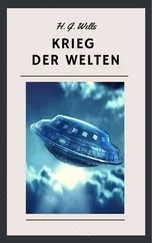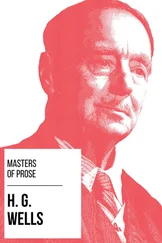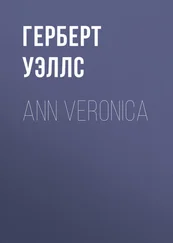disentangled the vicar's aunt.
"I love this warm end of summer more than words can tell," he
said. "I've tried to make words tell it. It's no good. Mild,
you know, and boon. You want music."
Ann Veronica agreed, and tried to make the manner of her assent
cover a possible knowledge of a probable poem.
"Splendid it must be to be a composer. Glorious! The Pastoral.
Beethoven; he's the best of them. Don't you think? Tum, tay,
tum, tay."
Ann Veronica did.
"What have you been doing since our last talk? Still cutting up
rabbits and probing into things? I've often thought of that talk
of ours--often."
He did not appear to require any answer to his question.
"Often," he repeated, a little heavily.
"Beautiful these autumn flowers are," said Ann Veronica, in a
wide, uncomfortable pause.
"Do come and see the Michaelmas daisies at the end of the
garden," said Mr. Manning, "they're a dream." And Ann Veronica
found herself being carried off to an isolation even remoter and
more conspicuous than the corner of the lawn, with the whole of
the party aiding and abetting and glancing at them. "Damn!" said
Ann Veronica to herself, rousing herself for a conflict.
Mr. Manning told her he loved beauty, and extorted a similar
admission from her; he then expatiated upon his own love of
beauty. He said that for him beauty justified life, that he
could not imagine a good action that was not a beautiful one nor
any beautiful thing that could be altogether bad. Ann Veronica
hazarded an opinion that as a matter of history some very
beautiful people had, to a quite considerable extent, been bad,
but Mr. Manning questioned whether when they were bad they were
really beautiful or when they were beautiful bad. Ann Veronica
found her attention wandering a little as he told her that he was
not ashamed to feel almost slavish in the presence of really
beautiful people, and then they came to the Michaelmas daisies.
They were really very fine and abundant, with a blaze of
perennial sunflowers behind them.
"They make me want to shout," said Mr. Manning, with a sweep of
the arm.
"They're very good this year," said Ann Veronica, avoiding
controversial matter.
"Either I want to shout," said Mr. Manning, "when I see beautiful
things, or else I want to weep." He paused and looked at her,
and said, with a sudden drop into a confidential undertone, "Or
else I want to pray."
"When is Michaelmas Day?" said Ann Veronica, a little abruptly.
"Heaven knows!" said Mr. Manning; and added, "the twenty-ninth."
"I thought it was earlier," said Ann Veronica. "Wasn't
Parliament to reassemble?"
He put out his hand and leaned against a tree and crossed his
legs. "You're not interested in politics?" he asked, almost with
a note of protest.
"Well, rather," said Ann Veronica. "It seems-- It's
interesting."
"Do you think so? I find my interest in that sort of thing
decline and decline."
"I'm curious. Perhaps because I don't know. I suppose an
intelligent person OUGHT to be interested in political affairs.
They concern us all."
"I wonder," said Mr. Manning, with a baffling smile.
"I think they do. After all, they're history in the making."
"A sort of history," said Mr. Manning; and repeated, "a sort of
history. But look at these glorious daisies!"
"But don't you think political questions ARE important?"
"I don't think they are this afternoon, and I don't think they
are to you."
Ann Veronica turned her back on the Michaelmas daisies, and faced
toward the house with an air of a duty completed.
"Just come to that seat now you are here, Miss Stanley, and look
down the other path; there's a vista of just the common sort.
Better even than these."
Ann Veronica walked as he indicated.
"You know I'm old-fashioned, Miss Stanley. I don't think women
need to trouble about political questions."
"I want a vote," said Ann Veronica.
"Really!" said Mr. Manning, in an earnest voice, and waved his
hand to the alley of mauve and purple. "I wish you didn't."
"Why not?" She turned on him.
"It jars. It jars with all my ideas. Women to me are something
so serene, so fine, so feminine, and politics are so dusty, so
sordid, so wearisome and quarrelsome. It seems to me a woman's
duty to be beautiful, to BE beautiful and to behave beautifully,
and politics are by their very nature ugly. You see, I--I am a
woman worshipper. I worshipped women long before I found any
woman I might ever hope to worship. Long ago. And--the idea of
committees, of hustings, of agenda-papers!"
"I don't see why the responsibility of beauty should all be
shifted on to the women," said Ann Veronica, suddenly remembering
a part of Miss Miniver's discourse.
"It rests with them by the nature of things. Why should you who
are queens come down from your thrones? If you can afford it, WE
can't. We can't afford to turn our women, our Madonnas, our
Saint Catherines, our Mona Lisas, our goddesses and angels and
fairy princesses, into a sort of man. Womanhood is sacred to me.
My politics in that matter wouldn't be to give women votes. I'm a
Socialist, Miss Stanley."
"WHAT?" said Ann Veronica, startled.
"A Socialist of the order of John Ruskin. Indeed I am! I would
make this country a collective monarchy, and all the girls and
women in it should be the Queen. They should never come into
contact with politics or economics--or any of those things. And
we men would work for them and serve them in loyal fealty."
"That's rather the theory now," said Ann Veronica. "Only so many
men neglect their duties."
"Yes," said Mr. Manning, with an air of emerging from an
elaborate demonstration, "and so each of us must, under existing
conditions, being chivalrous indeed to all women, choose for
himself his own particular and worshipful queen."
"So far as one can judge from the system in practice," said Ann
Veronica, speaking in a loud, common-sense, detached tone, and
beginning to walk slowly but resolutely toward the lawn, "it
doesn't work."
"Every one must be experimental," said Mr. Manning, and glanced
round hastily for further horticultural points of interest in
secluded corners. None presented themselves to save him from
that return.
"That's all very well when one isn't the material experimented
upon," Ann Veronica had remarked.
"Women would--they DO have far more power than they think, as
influences, as inspirations."
Ann Veronica said nothing in answer to that.
"You say you want a vote," said Mr. Manning, abruptly.
"I think I ought to have one."
"Well, I have two," said Mr. Manning--"one in Oxford University
and one in Kensington." He caught up and went on with a sort of
clumsiness: "Let me present you with them and be your voter."
There followed an instant's pause, and then Ann Veronica had
decided to misunderstand.
"I want a vote for myself," she said. "I don't see why I should
take it second-hand. Though it's very kind of you. And rather
unscrupulous. Have you ever voted, Mr. Manning? I suppose
there's a sort of place like a ticket-office. And a
ballot-box--" Her face assumed an expression of intellectual
conflict. "What is a ballot-box like, exactly?" she asked, as
though it was very important to her.
Mr. Manning regarded her thoughtfully for a moment and stroked
his mustache. "A ballot-box, you know," he said, "is very
Читать дальше












